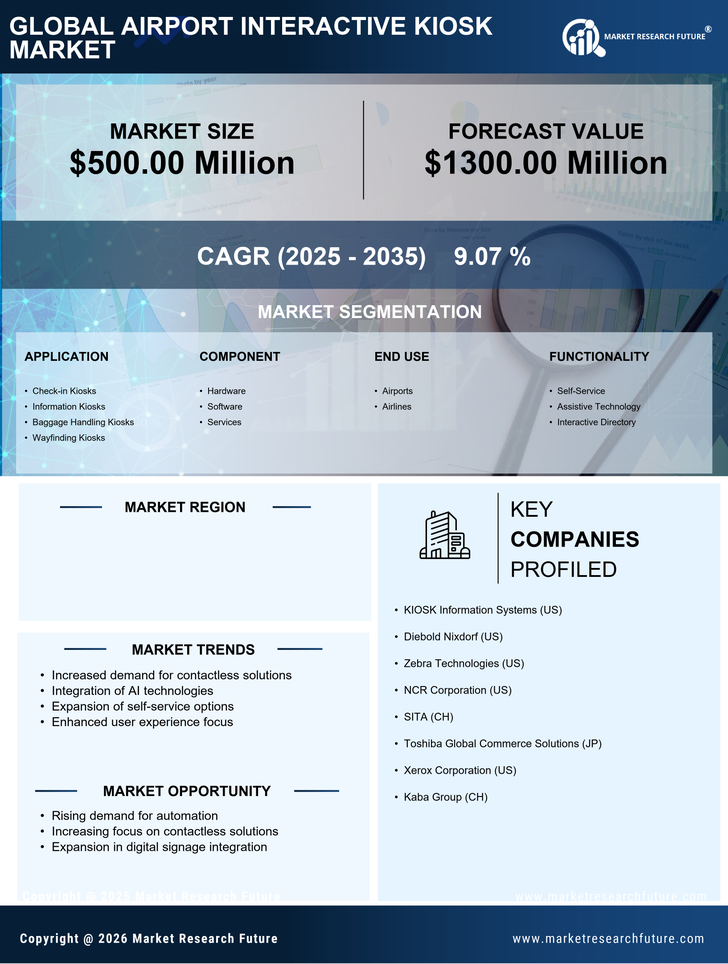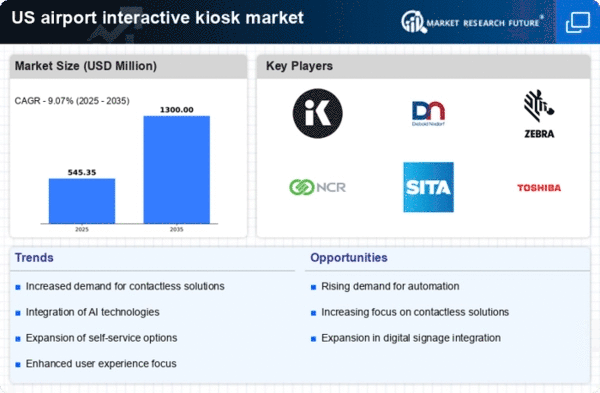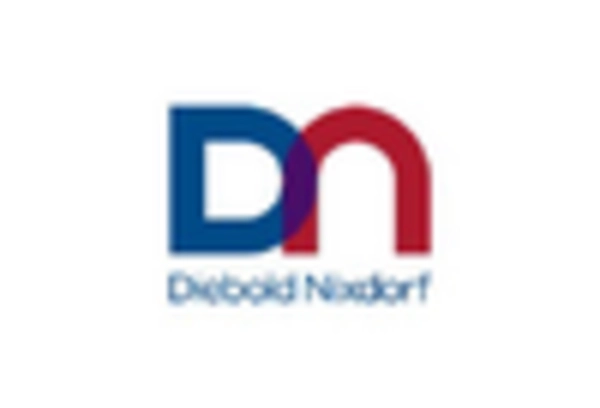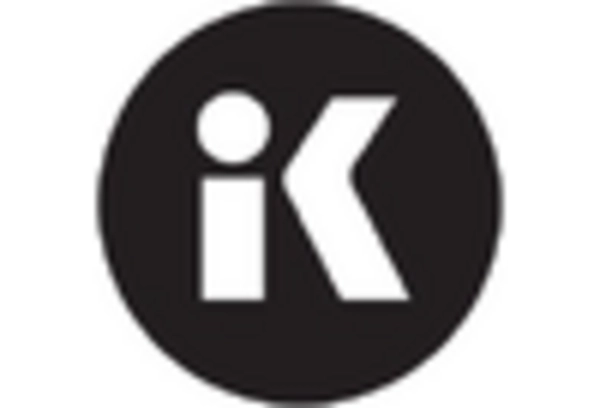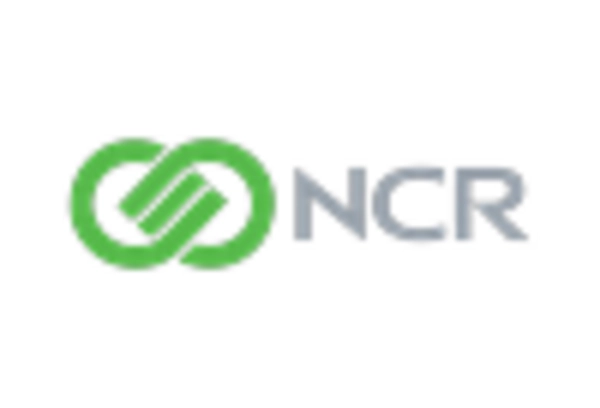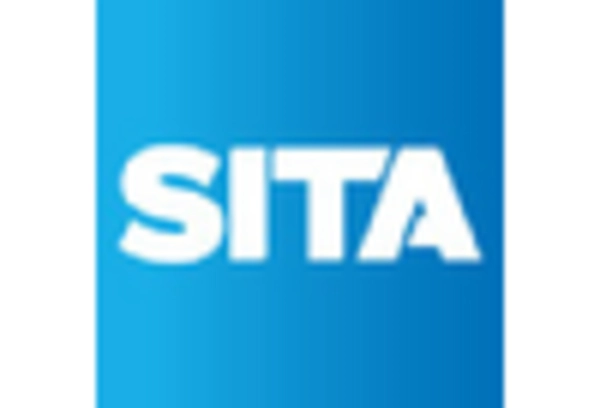Regulatory Support for Automation
Regulatory support for automation in the airport sector is emerging as a significant driver for the airport interactive-kiosk market. Government initiatives aimed at enhancing operational efficiency and passenger safety are encouraging airports to adopt automated solutions. Policies that promote the use of technology in passenger processing are likely to facilitate the deployment of interactive kiosks. For example, the Federal Aviation Administration (FAA) has been advocating for the integration of automated systems to streamline airport operations. This regulatory backing may lead to increased funding and resources for airports to invest in interactive kiosks, thereby accelerating market growth.
Growing Focus on Passenger Experience
The airport interactive-kiosk market is increasingly influenced by a growing focus on enhancing passenger experience. Airports are recognizing that providing a seamless and enjoyable travel experience is vital for customer retention and satisfaction. Interactive kiosks serve as a critical touchpoint in this journey, offering services such as flight information, wayfinding, and retail options. Data indicates that airports that prioritize passenger experience can see an increase in customer loyalty by up to 25%. As a result, investments in interactive kiosks are expected to rise, as they are integral to creating a more engaging and user-friendly environment for travelers.
Rise of Contactless Payment Solutions
The rise of contactless payment solutions is significantly impacting the airport interactive-kiosk market. As travelers increasingly prefer to use mobile wallets and contactless cards for transactions, kiosks equipped with these payment options are becoming essential. This shift not only enhances convenience but also aligns with the growing emphasis on hygiene and safety in travel environments. Data suggests that contactless payment methods can increase transaction speed by up to 50%, which is particularly beneficial during peak travel times. Consequently, airports are likely to invest in upgrading their interactive kiosks to support these payment technologies, further driving market expansion.
Technological Advancements in Kiosk Design
Technological advancements are playing a crucial role in shaping the airport interactive-kiosk market. Innovations such as high-resolution touch screens, biometric authentication, and real-time data processing are enhancing the functionality and user experience of kiosks. These advancements allow for faster transactions and improved security, which are essential in today’s travel environment. For instance, the integration of biometric technology can expedite identity verification processes, potentially reducing boarding times by 20%. As airports adopt these cutting-edge technologies, the market is likely to see a significant increase in the deployment of interactive kiosks, catering to the evolving needs of travelers and airport operators alike.
Increased Demand for Self-Service Solutions
The airport interactive-kiosk market is experiencing a notable surge in demand for self-service solutions. Travelers increasingly prefer to manage their own check-in, boarding passes, and other services without the need for human interaction. This trend is driven by a desire for efficiency and convenience, as passengers seek to minimize wait times. According to recent data, self-service kiosks can reduce check-in times by up to 30%, enhancing the overall passenger experience. Airports are responding to this demand by investing in advanced interactive kiosks, which are expected to account for a significant portion of the market growth. The shift towards self-service is likely to continue, as more airports recognize the benefits of these technologies in streamlining operations and improving customer satisfaction.
